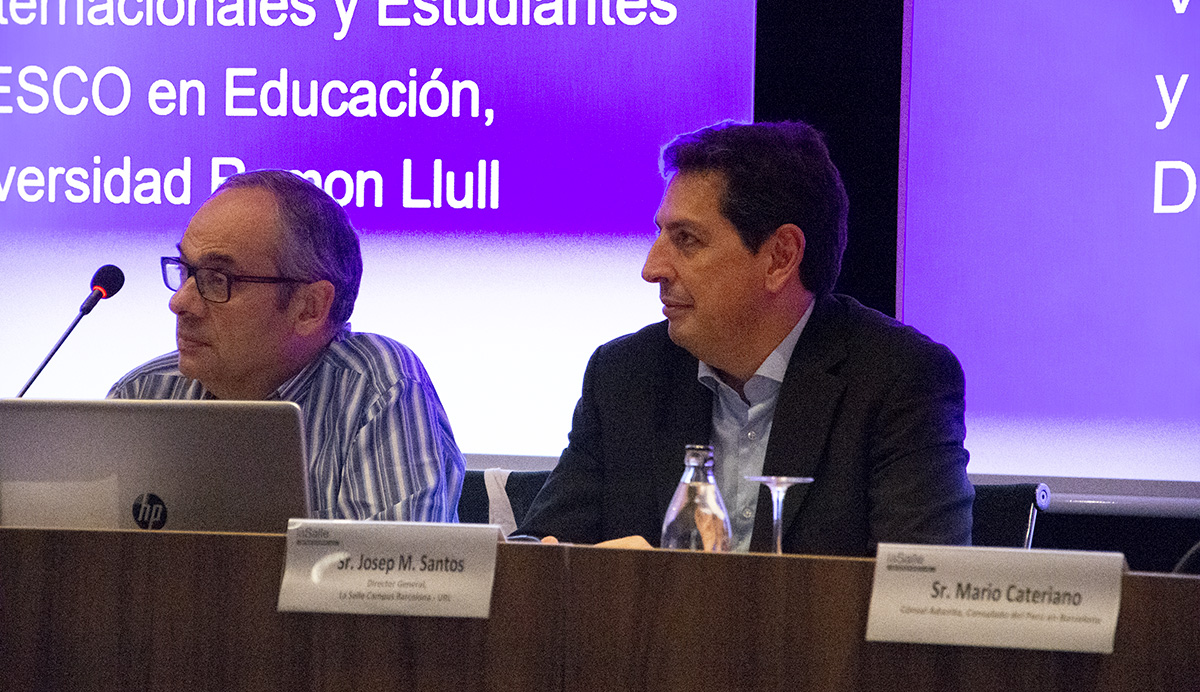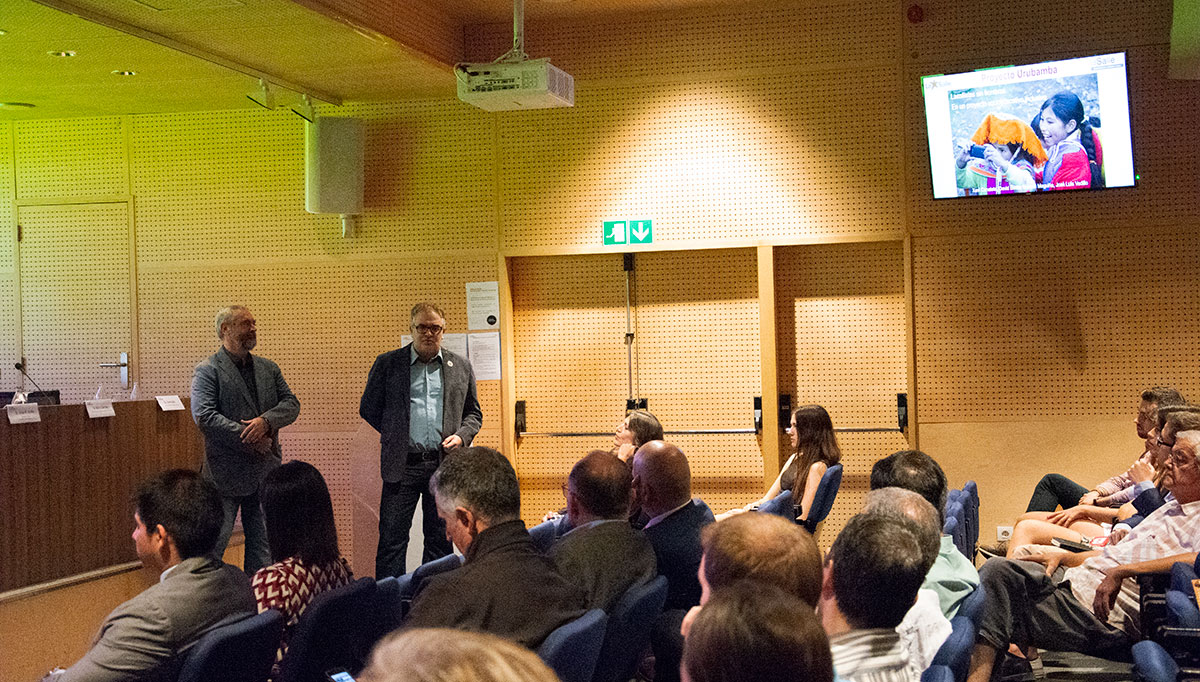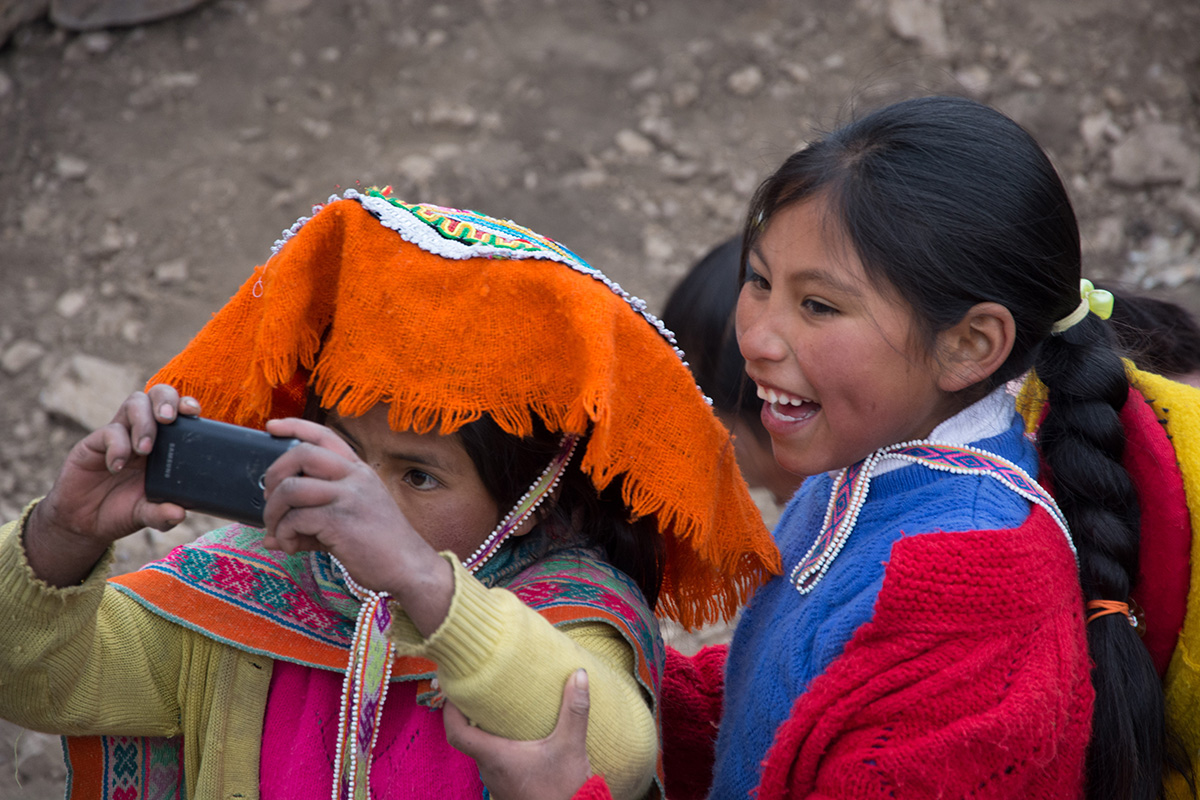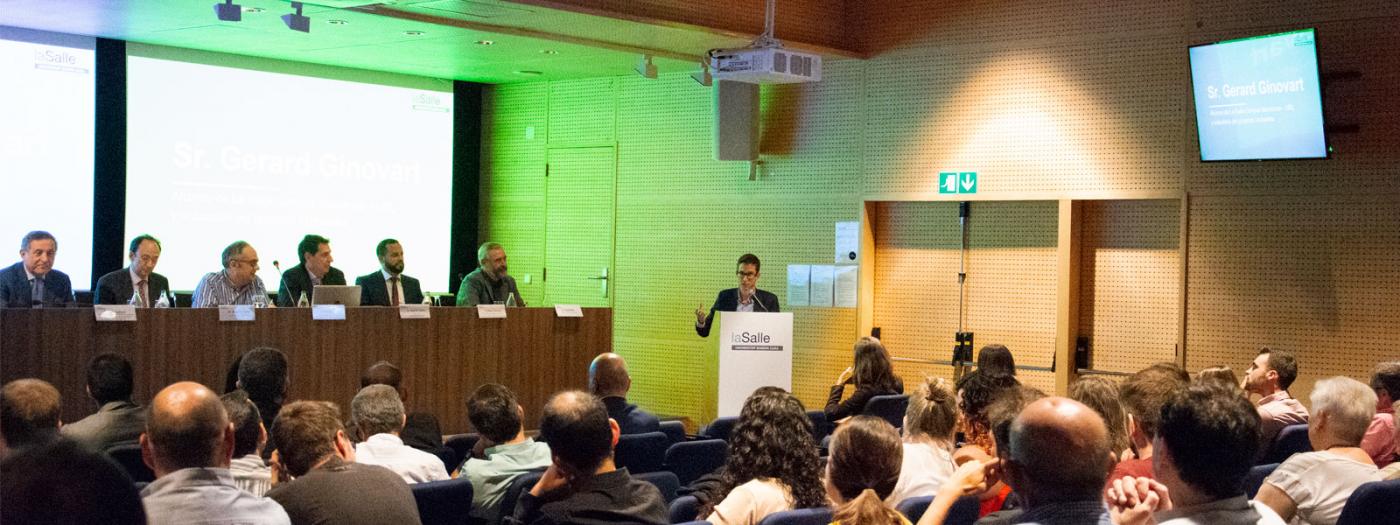The book, Project Urubamba. Lasallians without borders in an inclusive socio-educational project written by Xavi Canaleta, David Badia, Maryuri Maguiña and Brother José Luís Vadillo has been launched. The book, which was presented at the Auditorium of La Salle Campus Barcelona-URL, focuses on the Urubamba international cooperation project promoted by La Salle Campus Barcelona-URL and the Sacred Valley of the Incas, and covers its creation in 2013 up to 2018.

Coinciding with the commemoration of the death of Saint Jean Baptiste de la Salle, Josep M Santos, Director General of La Salle Barcelona-URL, urged those attending to uphold his legacy. “One heart, one commitment, one life”, which is the motto of this year's celebration, appeals to the need to transform the world through education. “If we dedicate ourselves to education and to education, it makes sense that we have organized a group of people to carry out cooperation missions with the University in Peru”, said Santos. “Since 2013, more than 60 cooperators have taken part in 7 teams, and in 2019 the team was made up of 12 members, 6 teachers who have gone out in the world to carry out the Lasallian mission”. Santos took the opportunity to address the needs created by the inequalities and divisions in today's world, educating students so they can go on to be agents of change.
Brother Manuel Marín offered his thanks via video for the work being carried out by La Salle-URL in the field of education, not only in terms of technology but also in teaching, with training in the use of software that allows children to develop their skills.
Dr. Carlo Gallucci, Vice-rector of International and Students Relations and Director of the UNESCO Chair in Education, Development and Technology from Ramon Llull University reaffirmed his unconditional commitment to the project. “Our university is privileged, not only because of the institutions that make it up or the staff there, but because we have the great advantage of having exceptional students”, Gallucci stated, “great institutions are made so by their people. Our best asset are our students and we have the obligation to turn them into great people capable of leading any project. And this doesn't happen through talk but through action".

Xavier Canaleta, co-author of the book, was responsible for explaining the origins of the Urubamba project, and he especially emphasized the educational power of Ramon Llull University to create good people. Encouraged to start the project back in 2012 by Brother Carles Giol, Canaleta used his intervention at the event to review all the projects that have been carried out within the framework of Urubamba, including actions in the field of education, physical education and telecommunications. David Badia presented the book's contents and discussed how it had been selected and designed, as well as explaining the financing that was needed to make it a reality. The funding came initially from donations through charitable events and, as the project grew, other larger sources such as the UNESCO Chair, Banco Santander and Ramón Llull University were obtained.
Gerard Ginovart, a student at La Salle-URL and volunteer in the Urubamba project, gave the perspective of the community of La Salle-URL students. “When I learnt about the project, I couldn't really imagine what it was. Like everyone else, I’d seen photos and videos, but I never got to see the love behind them, the companionship, how people who have nothing can have everything,” said Ginovart. “I'm an engineer, but I've always been passionate about helping people. This project has been enriching in terms of being able to discover things I never imagined”. Ginovart said he identified strongly with the values of La Salle-URL and encouraged everyone in attendance who might be attracted to this or any other PROIDE project to step up, as you get a lot more out of it than you put in.
Mario Cateriano, Consul attaché at the Consulate of Peru in Barcelona, offered his thanks for the commitment shown by Ramon Llull University, La Salle-URL and the PROIDE Foundation in helping the people of Urubamba and the central Andean areas in the vicinity. “Peru has grown a lot in recent years, but it still has many shortcomings and many people in vulnerable situations. Bridging the technological gap in the 21st century is essential, training people, teaching them, giving them the tools to live a full life and compete in a better world, is a source of great pride as a Peruvian citizen,” said Cateriano.
Dr Josep M. Garrell, rector of Ramon Llull University, also wished to highlight the role of the University as an educational body. “We’re very proud that the UNESCO Chair is able to help these kinds of projects being carried out at the university,” said Garrell. “We’re fortunate to be able to say that the University is a community of almost 22,000 people dedicated to education, and where we put people at the heart of everything we do”. Garrell pointed out that Universities are at the centre of many issues, and it is their responsibility to transform the community. Following in that sentiment, the rector put forward the suggestion that the university's governing bodies invite people from different university institutions involved in this type of activity to submit a joint report.
The ceremony concluded with a speech by Brother Josep Canal, Auxiliary Visitor of the ARLEP District and President of the PROIDE Foundation, who drew a parallel between the elements that make up the chullo (a traditional hat from the Urubamba region) and the values that make up the La Salle-URL community: different colours of wool that come together to form a whole, the chullo.
The Urubamba Project
The Urubamba project is an international cooperation project that has been sponsored by the UNESCO Chair and which receives funding from Banco Santander. The programme brings new technologies to the high Andean community of Peru as a mechanism for social inclusion, training teachers and students in the local community. La Salle Urubamba is a public school in Peru located in the Cusco region, run by La Salle. This school works to promote rural villages located between 2,800 and 4,000 meters above sea level. The main problem of the area, aside from the almost endemic poverty, is that most of the inhabitants in the area speak Quechua and little or no Spanish.

The Urubamba project has led to further projects such as Haku Wiñay (“learning together” in Quechua) which aims to improve the quality of La Salle Urubamba's teaching through a two-way education: you learn, I learn. Over the years, the courses and workshops have evolved both in form and content.
The e-yachay project (“learning” in Quechua) aims to create inclusive socio-educational environments in the rural communities of the Sacred Valley of the Incas through the use of digital technology. The fact that the student helps guide their own learning makes it more meaningful to them. Also, through technology they are able to see other realities far removed from their own environment, in preparation for when they move to other places. In order to implement the project, a series of priorities have been outlined including teaching-learning activities, digital infrastructure, educational software and teacher training, among others.
Ñawi (“sight” in Quechua) is the name of the next Urubamba project. The high Andean communities often fail to protect their eye sight, and in high-altitude areas the ultraviolet radiation can cause several visual problems. Students' vision is a crucial issue that directly affects their learning. With collaboration from Centre Visió i Audiologia, we have worked to provide all the tools they need to give children and adults tests, working to solve their problems with eye sight.
Work has also been carried out in the field of physical exercise. The Kurku Kallpanchay (“strenghtened body” in Quechua) project has sought not only to improve the health of students who are used to running at such a high altitude, but also in coordinating aspects that might impact the hidden motor skills needed in their daily lives.
Finally, the Willachikuy project was launched in 2018 with the aim of creating a pilot NVIS communications plan for isolated communities. The goal is to design and implement a basic messaging system to allow isolated communities without the usual telecommunication systems to communicate with each other. The NVIS (Near Vertical Incidence Skywave) propagation system uses the ionosphere to reflect certain frequencies and overcome physical obstacles.
